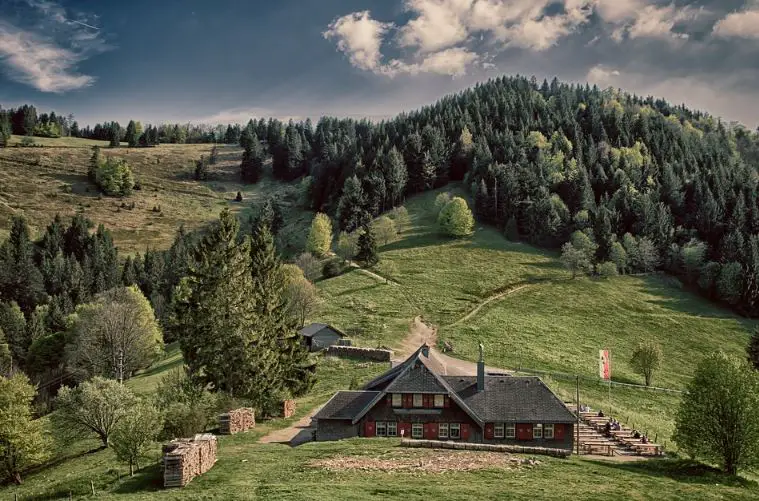What is the music scene like in Germany?
Post ByAdequate Travel
Summary
Germany is a vibrant and melodic country, featuring a diverse and dynamic music scene. From traditional folk ballads to modern electronica, Germany's music scene has something to offer every music lover. In this blog post, we dive into the music scene of Germany, exploring its rich history and diverse range of genres.
Stay informed about any travel restrictions or travel rules in place, as they may vary depending on your destination within the country.
The music scene in Germany is vibrant and diverse, encompassing a wide range of genres and styles. Germany has a rich musical heritage and has contributed significantly to various music movements throughout history. Here is a detailed explanation of the music scene in Germany:1. Classical Music:Germany has a deep-rooted love for classical music, being the birthplace of many renowned composers such as Johann Sebastian Bach, Ludwig van Beethoven, and Wolfgang Amadeus Mozart. The country is home to world-class orchestras, opera houses, and music schools that play a crucial role in preserving and promoting classical music. Cities like Berlin, Leipzig, and Munich are known for their prestigious institutions and classical music festivals.Example: The Berlin Philharmonic Orchestra, based in Berlin, is widely recognized as one of the leading orchestras in the world. They perform a vast repertoire of classical music and are known for their exceptional musicality and technical skill.2. Electronic Music:Germany has been at the forefront of electronic music for decades, especially in the genres of techno, house, and trance. The country has been influential in shaping electronic music movements and hosting iconic clubs and festivals. Berlin, in particular, is renowned for its vibrant and underground electronic music scene.Example: Berghain, located in Berlin, is one of the most famous techno clubs in the world. It attracts international DJs and techno enthusiasts who come to experience the immersive music and unique atmosphere.3. Pop and Rock Music:Germany has a thriving pop and rock music scene, with many successful German-language acts. German bands and solo artists have gained popularity both locally and internationally. The country also hosts numerous music festivals that showcase a diverse range of pop and rock music.Example: Rammstein is a highly successful German industrial metal band known for their theatrical live performances and controversial lyrics. They have a dedicated fan base around the world and have achieved significant international recognition.4. Hip Hop and Rap:In recent years, Germany's hip hop and rap scene has seen exponential growth with artists achieving mainstream success. German-language rap has become increasingly popular, with artists blending traditional rap elements with local flavor and German lyrics.Example: Capital Bra is a German rapper who has scored numerous chart-topping hits and has a massive following. His music combines catchy melodies, trap beats, and German rap lyrics appealing to a wide audience.5. Folk Music:Germany has a rich tradition of folk music, with various regional styles and instruments. Folk festivals and events celebrate traditional music, dance, and customs, helping preserve the country's cultural heritage.Example: The Oktoberfest in Munich is one of the most famous folk festivals in Germany and features live folk music performed by bands playing traditional instruments like the accordion and alphorn.In summary, the music scene in Germany is incredibly diverse, offering a wide range of genres and styles catering to different tastes. The country's love for classical music, thriving electronic music scene, success in pop and rock, rising hip hop and rap culture, and preserved folk traditions contribute to a dynamic and multifaceted musical landscape.
The music scene in Germany is vibrant and diverse, encompassing a wide range of genres and styles. Germany has a rich musical heritage and has contributed significantly to various music movements throughout history. Here is a detailed explanation of the music scene in Germany:1. Classical Music:Germany has a deep-rooted love for classical music, being the birthplace of many renowned composers such as Johann Sebastian Bach, Ludwig van Beethoven, and Wolfgang Amadeus Mozart. The country is home to world-class orchestras, opera houses, and music schools that play a crucial role in preserving and promoting classical music. Cities like Berlin, Leipzig, and Munich are known for their prestigious institutions and classical music festivals.Example: The Berlin Philharmonic Orchestra, based in Berlin, is widely recognized as one of the leading orchestras in the world. They perform a vast repertoire of classical music and are known for their exceptional musicality and technical skill.2. Electronic Music:Germany has been at the forefront of electronic music for decades, especially in the genres of techno, house, and trance. The country has been influential in shaping electronic music movements and hosting iconic clubs and festivals. Berlin, in particular, is renowned for its vibrant and underground electronic music scene.Example: Berghain, located in Berlin, is one of the most famous techno clubs in the world. It attracts international DJs and techno enthusiasts who come to experience the immersive music and unique atmosphere.3. Pop and Rock Music:Germany has a thriving pop and rock music scene, with many successful German-language acts. German bands and solo artists have gained popularity both locally and internationally. The country also hosts numerous music festivals that showcase a diverse range of pop and rock music.Example: Rammstein is a highly successful German industrial metal band known for their theatrical live performances and controversial lyrics. They have a dedicated fan base around the world and have achieved significant international recognition.4. Hip Hop and Rap:In recent years, Germany's hip hop and rap scene has seen exponential growth with artists achieving mainstream success. German-language rap has become increasingly popular, with artists blending traditional rap elements with local flavor and German lyrics.Example: Capital Bra is a German rapper who has scored numerous chart-topping hits and has a massive following. His music combines catchy melodies, trap beats, and German rap lyrics appealing to a wide audience.5. Folk Music:Germany has a rich tradition of folk music, with various regional styles and instruments. Folk festivals and events celebrate traditional music, dance, and customs, helping preserve the country's cultural heritage.Example: The Oktoberfest in Munich is one of the most famous folk festivals in Germany and features live folk music performed by bands playing traditional instruments like the accordion and alphorn.In summary, the music scene in Germany is incredibly diverse, offering a wide range of genres and styles catering to different tastes. The country's love for classical music, thriving electronic music scene, success in pop and rock, rising hip hop and rap culture, and preserved folk traditions contribute to a dynamic and multifaceted musical landscape.
Suggested Questions
- Altes Schloss, Stuttgart: Horror Story, History & Paranomial Activities
- Walpurgisnacht at Brocken, Harz Mountains: Horror Story, History & Paranomial Activities
- Wewelsburg Castle, Paderborn: Horror Story, History & Paranomial Activities
- Schloss Rheinfels, St. Goar: Horror Story, History & Paranomial Activities
- Zitadelle Spandau, Berlin: Horror Story, History & Paranomial Activities
- Herrenchiemsee Palace, Chiemsee: Horror Story, History & Paranomial Activities











